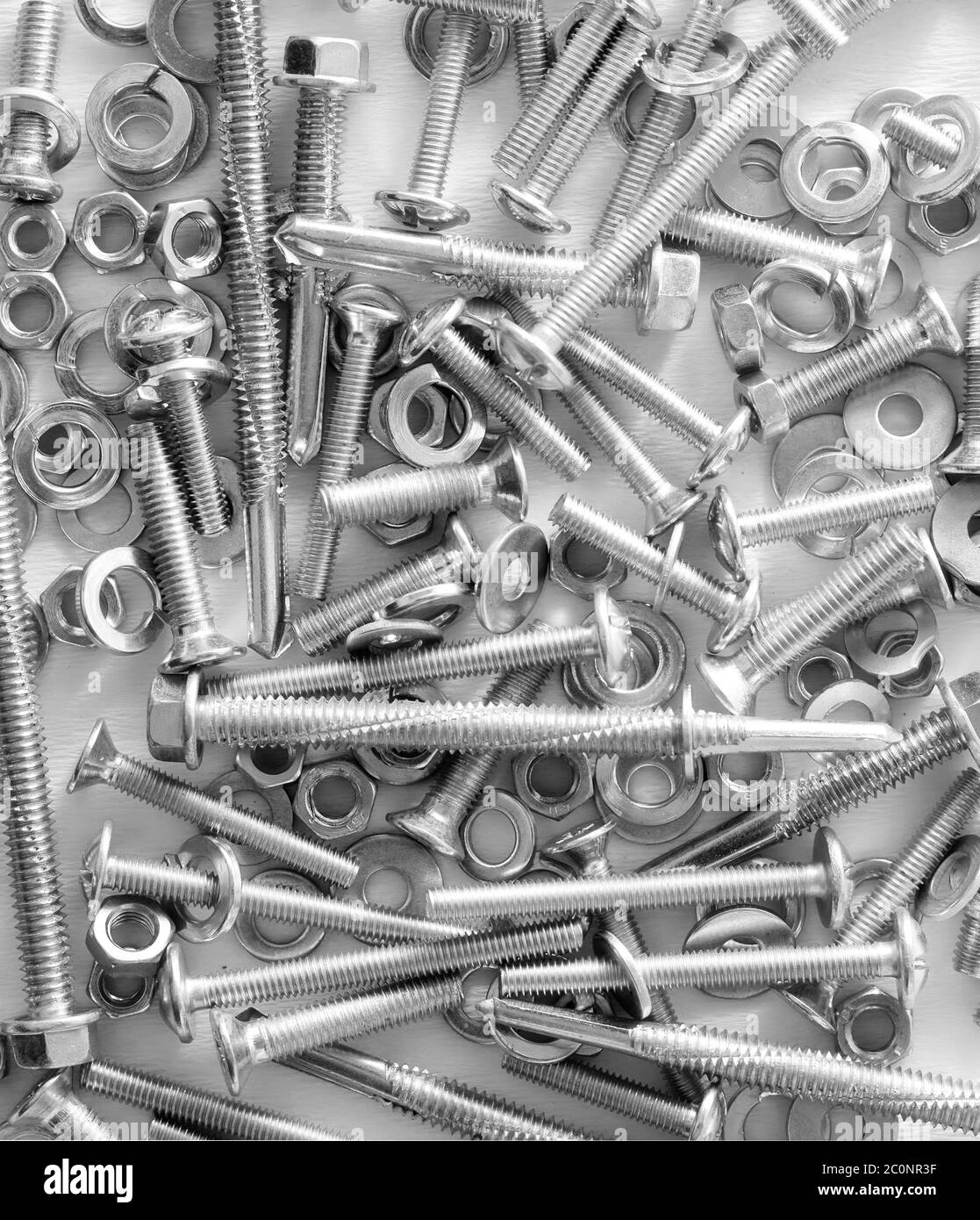In the world of fabrication, automotive repairs, and various DIY projects, nuts and bolts play an essential role, yet they often go overlooked. Such simple fasteners are the unsung heroes that hold together the very frameworks and objects we rely on every day. Without them, our furniture would collapse, our vehicles would break down, and our homes would lack the stability we often take for granted. Understanding the different kinds of nuts and bolts, their specific uses, and how to choose the right fastener for any project is essential for anyone who seeks to build or fix.
The following comprehensive guide is intended to investigate the vast world of nuts and bolts, from the fundamentals to the nuanced distinctions. We will explore the various types of fasteners available, including standard and specialty options, their specific functions, and the materials used to make them. Regardless of whether you are a seasoned professional or a weekend DIY enthusiast, this guide will assist you make informed choices, ensuring your projects are built to last. By the end, you will not only recognize the significance of these small yet powerful components but also feel sure in selecting the right fastener for your needs.
Categories of Fasteners and Bolts
Fasteners are basic fasteners commonly used across different fields, each serving distinct purposes tailored to defined applications. The most common types of bolts include hexagon bolts, carriage screws, and wood screws. Hex-head bolts have a hexagonal head and are commonly used in machines due to their elevated strength and versatility. Carriage bolts, characterized by their round heads and square shoulders, are suitable for fastening wood, providing a neat surface on one side while ensuring a secure grip on the other. Heavy-duty screws, on the contrary, are sturdy fasteners designed for timber, making them essential for building and carpentry tasks.
In addition to bolts, fastening components play a crucial role in ensuring the integrity of assemblies. Regular nuts, lock nuts, and washer nuts are frequently used in various scenarios. Regular nuts fit onto bolts to secure them in place, while locking nuts incorporate features that avoid loosening due to movement. Washer nuts include a integrated washer that distributes load and improves grip, making them suitable for applications where a firm hold is necessary. Knowing these various types of fasteners and their uses is critical for deciding on the right fasteners for every project.
In conclusion, the selection of fasteners and screws is based on aspects such as the substances being fastened, the needed strength of the bond, and the surroundings they will encounter. Whether it is for large-scale construction or small vehicle fixes, the correct selection of nuts and bolts can substantially impact the performance and longevity of a project. Familiarizing oneself with the numerous types of fasteners available, along with their specific attributes, enables DIY enthusiasts and contractors alike to take informed choices in their joining tasks.
Components and Finishes
When it comes to fasteners and bolts, the material used plays a vital role in determining their stability, durability, and fitness for specific applications. Steel is the most common substance due to its elevated tensile strength and affordability. Variations like corrosion-resistant steel offer added corrosion resistance, making them suitable for external and marine environments. Additionally, other substances such as bronze and titanium are often chosen for their unique properties, including lightweight options and resistance to certain chemicals.
Coatings on fasteners and hardware are equally important when it comes to performance and longevity. Zinc plating is widely used to provide a degree of rust resistance, but this technique isn't as durable as galvanization, which involves a enhanced layer of metal to better withstand harsh environments. Other finishes, like epoxy or polymeric finish, can offer additional protection and visual appeal, with options tailored for specific conditions or aesthetic requirements.
Understanding the appropriate materials and finishes for your fasteners is essential for ensuring endurance and reliability in your tasks. When selecting nuts and hardware, consider not just their strength and load-bearing capabilities but also the surroundings in which they will be used. This knowledge will help you choose the optimal choices to suit your needs and enhance the overall functionality of your assembly.
Specialty Fastening Solutions
When addressing unique projects, specialty fasteners often serve as key tools in ensuring durability and performance. From safety fasteners to anchor bolts, these custom components cater to particular demands that conventional nuts and bolts may not fulfill. For example, security nuts and bolts are designed for applications where theft or unauthorized removal could pose a danger, making them ideal for public installations and machinery that must be protected.

Another important category comprises nylon lock nuts, which include a nylon insert that provides friction against the bolt threads to avoid failure. These fasteners are particularly useful in settings subjected to shaking, such as automotive applications or machinery installations, where ensuring tight connections is essential. from this source helps increase the longevity of assemblies by minimizing the chance of fastener failure due to vibration-induced loosening.
In conclusion, anchor bolts hold a critical role in construction and foundation work. These fasteners fasten structures to concrete, providing support and strength in various applications, from buildings to bridges. Understanding when to use expansion bolts versus other types of anchors can significantly boost construction outcomes, guaranteeing that projects are both safe and compliant with building standards. Investigating these specialty fasteners arms DIY enthusiasts and professionals alike with the insight necessary for effective and reliable applications.
